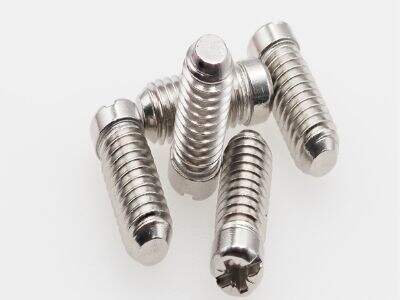So I guess we are discussing bolts and how they hold things up? Bolts are common but very important in our daily lives. Bolts as you can see are used in Furniture, Cars, and Buildings. They have tons of variations and their primary purpose is to hold two things together firmly. But did you know that Bolts by QD aren’t just for screwing and unscrewing?
The Science of Bolts
The science of bolts involves understanding how the materials and threads of bolts can improve their overall function. Researchers and engineers continuously seek advancements in bolt methods. They research how much different kinds of materials can impact the strength or weakness of a bolt. This includes standards that Bolts must meet in order to function effectively and safely.
These standards help ensure that if you use a bolt that it will properly hold things together. Should a bolt not match these standards, it could snap or fail, leading to issues. That is why fastener screw bolt is necessary for proper bolt use in the prober places.
The Importance of Threads
The thread is the helical shape that encircles the bolt. It allows the bolt to teeth and bite down on things. Thread is also really important; it’s kind of like our winding road that’s going to help the bolt get in and out of a hole. Thread design – The design of a thread is critical to allowing a bolt to handle pressure and stress without fracturing. Well designed threads can make the bolt set stronger, more efficient and potentially even longer lived.
This includes things like the thickness of the thread, the shape of the thread, and how the thread is created. Such problems might influence a bolt's usefulness. If the thread is too thin, the bolt breaks when it tightens. The engineer that conducted the tests and results also ensured that new methods, such as special coatings, rolling the threads, etc. could lead to enhanced thread design and bolt performance.
The Materials Used for Bolts
Bolts come in a variety of materials including steel, aluminum, and titanium. The material selected is determined by the specific application and placement of the bolt. Some bolts, for example, although used in cars are a little different than the bolts used in a kitchen appliance.
Each material comes with its own pros and cons, some can support much more weight than others. Steel bolts are powerful and can carry heavy objects; aluminum ones are lighter and can resist rust. Some materials can also resist rust and withstand high heat better than others, making them ideal for certain jobs.
It is important to know the correct materials for bolts. Using the wrong material can cause accidents or serious damage. Hence by knowing the properties of each material will help you decide the best for the work.
Good Thread Design Makes Bolts More Effective
A big part of making bolts work better is designing good threads. The ridges and grooves on the bolt help it fit into a hole. “Just like a hole — a hole has to be the same size and shape as the ridges in order to fit.” It would be like trying to cram a square peg into a round hole—it just isn’t going to happen.
If the thread is the incorrect size it may be difficult to screw the bolt in or can slip out when under pressure. This adds a great deal of significance to the correct thread design. Just as we want threads, the bolt holding the pieces together if the threads fit well enough forms a stay (indicating that the objects stay where they must be and do not scatter).
New Ideas in Bolt Science
Bolt science is a constantly evolving and improving field. New research aids in developing improved bolt materials and designs. Scientists and engineers are constantly seeking to improve the strength and reliability of bolts.
One example of a new idea is the torque indicator system. This way, people know how tight the bolt is, as they are placing it. It’s like having a helper who can tell you whether you are tightening the bolt too much or too little.” That way, they can ensure that it is perfectly fitted — not too tight, and not too loose.”
Another exciting new idea: to coat the bolts with special materials. Some coatings help shield bolts from rust, heat and other damaging components. In extreme conditions and for safety reason bolt need to be coated so that they can last long and function properly.
QD bolts are nifty little bolts that feature a different thread design than your average bolt, making them a lot stronger. They’re designed to withstand heavy use and last a long time. Plus they have a special coating on them so they don’t rust and also sits in there pretty tight. Our QD bolts are vigorously tested to ensure maximum strength and survival ability even in harsher environments.
To wrap it up, bolt science is a thrilling field examining materials and thread configurations which allow a bolt to be functional. Thread and good thread design is very important for strong gripping, and the right materials help resist rust and heat. Lucky for us, new advances in bolt technology, such as QD bolts, allow bolts to serve a greater purpose and be a more long-lasting connection point, keeping the world chugging away securely.












































